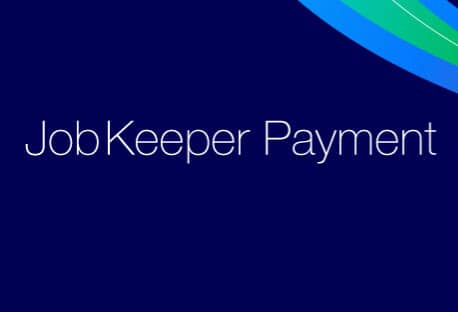2020 is already halfway and we are all heading into the new
financial year. Despite there are quite many changes from the government stimulus
package, there are still some key changes that we can take a look at for Financial
Year 2021.
Reduced company tax rate from 1 July 2020
Firstly, from 1 July 2020, tax rate for small business under
certain structure has been reduced to 26%.
Businesses such as companies, corporate unit trusts and
publicly trading trusts with a turnover less than $50 million will be taxed at
a rate of 26% in 2020-21. The tax rate 30% will continuously apply to all
companies that are not eligible for lower company tax rate. Generally, the ones
with a turnover more than $50m. The lower company tax rate will then reduce to
25% from the 2021-22 income year. Progressive changes to the company tax rate
can be found below:
|
|
2018-19
and 2019-20
|
2020-21
|
2021-22
|
|
* Base Rate Entities
|
27.5%
|
26%
|
25%
|
|
Other corporate tax entities
|
30%
|
30%
|
30%
|
*base
rate entity is a company has an aggregated turnover less than $50m and 80% or
less of their assessable income is passive income
Increased National Minimum Wage Rates
From 1 July 2020, the minimum wage has been increased by
1.75%
The Fair Work Ombudsman has staggered the increase into
three stages:
The first group on 1 July 2020
- Frontline healthcare and social assistance workers
- Teachers and childcare workers
- Other essential services
The second group on 1 November 2020
- Construction
- Manufacturing
- A range of other industries
The third group on 1 February 2021
- Accommodation and food services
- Arts and recreation services
- Aviation
- Retail
- Tourism
Please go to Fair Work Ombudsman
Website (https://www.fairwork.gov.au/)
for more information in regards to the affected industries.
For all other employees who are not covered by an award or employment
agreement, they have to be paid at a minimum hourly rate of $19.84 or $753.8
per week. The changes will become effective from 1 July 2020.
Employers should ensure their employee receive at least the
national minimum wage to avoid breaching any industrial and superannuation
obligations.
Increase the flexibility of Parental Leave Pay for self-employed
Starting from 1 July 2020, adopting the Parental Leave Pay
Planning announced by the government will provide parents more flexibility and choice.
The new measure introduces 30 days of flexible paid parental
leave for self-employed and small business owners.
Before, parents are only eligible to claim paid parental
leave of 18 weeks in one go. Now, the payment will include both:
- A continuous paid parental leave period of up to
12 weeks and,
- 30 flexible paid parental leave days
Parents can still get parental leave pay in a single
continuous 18 weeks block. Alternatively, you can choose a shorter block of 12
weeks. You can then take the remaining flexible paid parental leave when it
suits you. However, you must take the flexible paid parental leave days all before
your child turns 2. For example, you work 5 days a week previously. Now you
have your new born child. You can choose to take a continuous 12 weeks paid
parental leave first, and work for three days a week and take a paid parental
leave for the remaining 2 days.
If employees want to receive a flexible paid parental leave,
they have to negotiate with their employers in regards to their paid leave
period or back to work as a part-time. If you cannot make an agreement with
your employers regarding your working arrangement, you have to take a
continuous block of 18 weeks.
You can changes apply to the babies born on or after 1 July
2020 but the application for the flexible arrangement is opened from 1 April
2020.
Other changes from 1 July 2020
- The instant assets write-off of $150,000 threshold for small business has been expanded to 31 December 2020.
- Cents per kilometre for work purpose deduction has been increased from $0.68 to $0.72.
- Capital gain tax exemption for non-resident for main residence will not be available unless you satisfy the life event test. Please refer to our article “CGT exemption on Main Residence is not any more to Foreign Resident” for more information.
- Small businesses with employee less than 19 are required to finalise the payroll information through STP (Single Touch Payroll) system which was enforced from 1 July 2020. Please refer to “For All Business – Single Touch Payroll” for more information.
In Pitt Martin, we keep our clients with government tax and policy updates so they won’t be disadvantaged by the obsolete legislation. Call us on 02 92213345 or email connect@pittmartingroup.com.au for this tax season.
Disclaimer: This article is not providing a formal advice and may not suit to all scenarios. Please make an appointment with us to discuss.
Experienced Tax Accountant and Business Advisor with a demonstrated history of working in the accounting and mortgage industry. Skilled in Tax, Accounting, Business Advisory, SMSF, Audit and Mortgage. Strong entrepreneurship professional with qualification Master of Professional Accounting, CA Public Practice, Registered Tax Agent, Registered ASIC Agent, NSW Law Society External Examiner, Trust Account Auditor and Diploma of Finanical Planning. Specialised in SME, tax planning and international tax, he helped client save ample money and create wealth.









